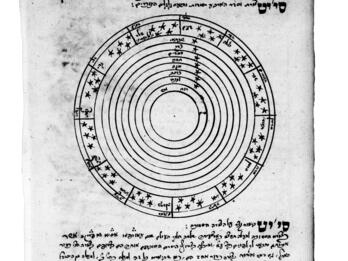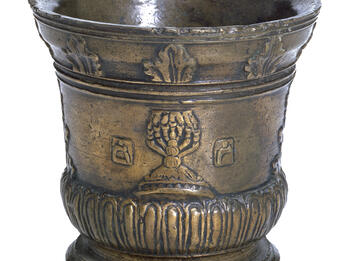Medicus politicus (The Physician for the Public Good)
Chapter Two. Definition of Medicine and of a Doctor, and the Necessity That Physicians Be Rational
So, to begin in the manner now accepted, in which (by scholarly consensus) the practice is to lay one’s groundwork for any discussion with a definition of its proposed subject: A doctor is a good man who is experienced in medicine. The oath of Hippocrates requires that doctors be good, and they receive a training in virtue as they practice the art of medicine and study the branches of advanced learning. As this virtue begins to act upon them, they spare no labors, undertake anything that leads to the discovery of truth, and put nothing ahead of the total wellbeing of the sick. They expend all possible energy in reading, research, and inquiry to increase their expertise and deliver the sick from their diseases. For this is their proper job and goal, and they have no other goal where medical work is concerned. If, however, people practice medicine for some other reason, such as profit, honor, or glory, they cannot be called simply Doctor. Rather, according to their goal they will be called Doctor of Ambition, Doctor of Glory, Doctor of Profit, and so on.
People truly called doctor are motivated to heal by kindness and humanity. This is why the science of healing was once considered an aspect of philosophy, for the same authors dealt with curing diseases and with the contemplation of natural science and morality. Not surprisingly, these were the authors who had cultivated their own physical health through tranquil reflection and virtue. Therefore we read that many philosophers were experienced in medicine, the best known being Diocles, Chrysippus, Praxagoras, Pythagoras, Empedocles, Democritus, and Hippocrates. Hippocrates, the most famous and important of all, a man exceptional both in skill and talent, made the distinction between medicine and philosophy. After him others developed the art of medicine through different approaches to healing, such as the empirical, methodical, and rational. We see the rational approach to medicine as part of the very definition of a “doctor,” and we explain it as follows: The art of creating and preserving health through reason and experience. The most distinguished of all physicians subscribe to this definition. Aiming at higher goals, they pursue scientific knowledge, realizing that without it, medicine would be undeveloped, defective, and weak. They even judge it important to find out the exact nature of phenomena. They weigh the significance of symptoms, the variety of causes, the effects of food, drink, air, and other circumstances, and consider all their observations when investigating possible cures. From this it is obvious that rational medicine involves knowledge of practically everything. Physicians need familiarity with latent and tangential causes, as well as normal workings, and an understanding of the inner organs, if they are to grasp what leads to good or poor health. In short, they ought to have a coherent vision of all things normal, abnormal, and anomalous.
Thus it is that four elements distinguish rational medicine: observation of nature, knowledge of causes, consideration of symptoms, and prescription of cures. These elements confirm that this is the same medicine that Apollo first invented, Hippocrates wrote down among the Greeks, and Galen demonstrated. Up to his time it was called dogmatic medicine, due to the various theories that arose among its followers. For Celsus writes that Herophilus located the cause of illness in moisture, whereas Erasistratus thought it was in the circulation of blood from veins to arteries, Asclepiades in the blockage of imperceptible openings, Hippocrates in the breath. It is plainly clear, however, that both theory and practice are necessary, and that medicine supported on these two legs proceeds strongly. Those who lean upon both are the excellent and most worthy physicians who should be trusted by princes, leaders, and all others who value their health. Be warned that many who advertise themselves under the distinguished title of “rational physicians” are in fact practicing medicine in the empirical or methodical fashion. These people deserve to be called the adulterators and deserters of medicine, not its followers. Rational physicians, by contrast, rely partly on experience, which originates in observation, and partly on reason, which originates in the intellect. And just as experience is not capable of discovering everything by itself, neither is rationality. Nevertheless, rational medicine is named after reason because that is the more potent of its two elements.
Translated by
.
Credits
Rodrigo de Castro, Medicus politicus (The Physician for the Public Good) (Hamburg: 1614), 3–5.
Published in: The Posen Library of Jewish Culture and Civilization, vol. 5.








